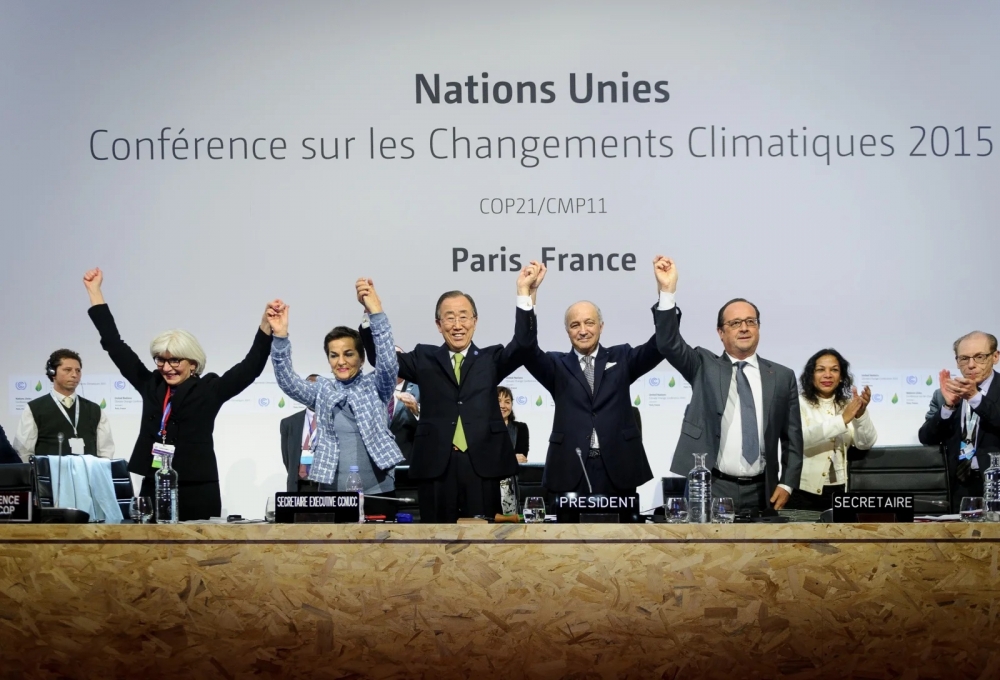
Fuel for Thought
To address the climate crisis, many experts urge governments to make fossil fuels more expensive for consumers. It can be a risky proposition for political leaders. After all, what consumer wants to vote for someone who promises to make them spend more money at the gas pump?
A new study by scholars at UC Santa Barbara and UCLA in the Proceedings of the National Academy of Sciences investigates the role of a broad spectrum of political leaders – including presidents, prime ministers and monarchs – in raising taxes on, and reducing subsidies for, gasoline. The research finds that these leaders have failed to have a lasting effect on both taxes and subsidies, whether they were a dictator or a democratically elected president.
“Our answer is effectively, no, leaders have little role in effectively changing fuel taxes and subsidies,” said Paasha Mahdavi, associate professor of political science at UC Santa Barbara and co-author of the study. “As much as they want to have an impact, there are too many things in the way.”
Mahdavi and his co-authors (Cesar Martinez-Alvarez, Chad Hazlett and Michael Ross, all from UCLA) have previously worked on topics related to how governments use political power to reduce a nation’s carbon footprint.
“We wondered, what are the things that do predict success in this area? We wondered about political leadership,” Mahdavi said. “Maybe a very pro-environment leader would have a lasting effect in reducing subsidies or increasing taxes on gasoline. We were curious about the role of political leaders themselves, and that led us to this study.”
Their research found that the challenges faced by leaders who believed in using financial incentives to curb fossil fuels were ultimately too great to overcome. “Across the board — across gender, age and political ideology — this is an incredibly hard thing to do. There’s too much pushback and the politics are too challenging, even for the most pro-climate leaders,” Mahdavi explained.
What’s more, the study finds that in countries where leadership does seem to have an impact on fossil fuel prices, most of the reforms were reversed within five years.
Mahdavi and his co-authors cite Brazil as one example of this rollback phenomenon. Lula de Silva, the country’s president from 2003 to 2010, substantially increased the price of gasoline during his tenure. Those efforts were swiftly abated by his successor, Dilma Rousseff, whom he handpicked. “It’s not like this was a different party coming into power,” Mahdavi said. “This was the person he wanted in office. And they still couldn’t make it work.”
To draw their conclusions, the researchers sifted through monthly data from 155 countries over 25 years. “We drew from an expanded data set that looks at monthly prices of gasoline from every country of the world with a population of at least one million, going all the way back to 1990 until 2015, when the Paris Agreement was signed,” said Mahdavi. “That is, to date, the most comprehensive data set on this issue.”
According to the authors, their findings illustrate just how difficult it is for leaders to cut gasoline subsidies and raise gas taxes, despite what climate experts might advise. They suggest leaders should focus instead on other policies for promoting decarbonization.
“It’s not impossible to raise the prices of fossil fuels, but it’s really hard to do,” Mahdavi said. “If you’re going to spend political capital, it is more effective to reduce the cost and increase the availability of alternatives such as renewable energy, electric vehicles, or public transportation.”
Mahdavi points out that even nations that experience less political pushback, like dictatorships, can’t successfully raise prices on fossil fuels. “That should be eye-opening to governments,” he said. “Stop wasting your political capital on this. Spend more time trying to improve alternatives.”



